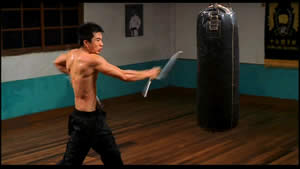Once Upon a Time in High School( Spirit Of Jeet Kune Do )

- Made: 2004
- Format: DVD
- Region: PAL Reg 2
- Release Date: Apr 17 2006
- Company: Premier Asia
- Length: 152 mins
- Picture: Anamorphic 16:9 widescreen
- Sound: DD 5.1 / DTS
- Language: Korean with English subtitles, English dub
- Extras: interview with action director Shi Jae-myung, Outtakes, interviews with cast, gallery, trailers
- Classification: 15
Director:
Ha Yu
Cast:
Kwon Sang-woo, Lee Jeong-jin, Han Ga-in, Kim Won-kwon, Lee Jong-hyeok
Once Upon a Time in High School - Korean cinema has been on the up in the last few years. Films such as Old Boy, Brotherhood and Sympathy for Lady Vengeance have all enjoyed decent international exposure. UK labels Premier Asia and Optimum Asia are now focusing on Korea for a significant part of their output with recent titles including Fighter in the Wind, Arahan and Crying Fist. The latest in this growing trend is Once Upon a Time in High School. This coming of age tale draws on the almost fanatical influence of Bruce Lee on Asian culture in the seventies and the trials and tribulations of one teenager in a tough school.
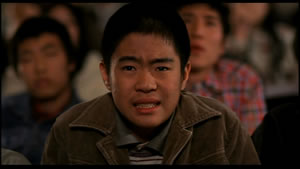


Plot:
Director and Writer Ha Yu assembled a relatively inexperienced cast for Once Upon a Time in High School (OUATIHS). The lead is taken by Kwon Sang-woo, who plays Hyun-soo. After moving to a new area in Korea 1978, he is enrolled at the local 'military-style' school. The school is run by the military, but also by the strongest and most violent pupils. He soon befriends Hamburger (Park Hyo-jun) and class king-pin Woo-sik (Lee Jeong-jin), but things start to get complicated when him and Woo-sik develop affection for high-school sweetheart Eun-ju (Han Ga-in). There are three central threads to this story. There is the complicated love triangle between the leads, then there is Woo-sik and Hyun-soo's battle against other oppressive students at the school and finally Hyun-soo's coming of age tale and his oppressive relationship with his father.
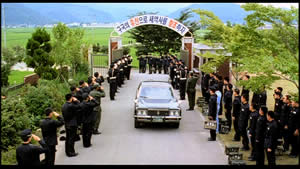


Film:
After watching OUATIHS for about thirty minutes I started to believe that this was a really special movie. It somehow managed to balance nerve-jangling Asian action with a deep and meaningful storyline. I spent the rest of the movie expecting it to fully deliver on this potential, but it never really managed to climax. By the time Hyun-soo invokes the spirit of Bruce Lee for a brief but brutal school fight, the time for crescendo had passed and the momentum was already lost. Having said that, the acting and production standards are particularly high, which ensures the film has a professional and polished edge. Particularly strong is Lee Jeong-jin, who plays his role as troubled teen with a real verve.
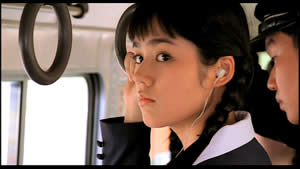


I was expecting a snappy and at times brutal tale of life in Korean schools in the late seventies. My initial thoughts were to see some kind of manga-style action, with the violence going beyond the bounds of reality (see Story of Ricky or the novel Kung Fu High School), but the action is quite gritty and understated. I am a bit uncomfortable with the marketing for this title, as it is not an action film, or a tribute to Bruce Lee. There are only fleeting references to Bruce Lee, rather than a fully blown homage to the legend. The main play for this movie is the drama. The relationship between Hyun-soo and Eun-ju is particularly subtle as the ultra-shy boy does not have the conviction to grasp what he wants. When he is ultimately called to action is not love but rather revenge that drives him forwards.
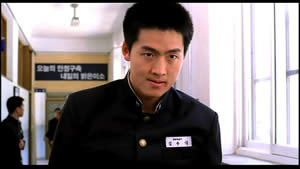


Disc:
A great print and the expected Premier Asia treatment come with this package. There is no audio commentary or any real show-stoppers in the extras package. This movie includes an interview with Action Director Shin Jae-Myung, some interviews with the cast and outtakes. A decent, but unspectacular package.
Overall:
This film had glimmers of greatness, but unlike Bruce Lee, it fails to deliver a killing blow. I would probably classify this as an interesting and engaging drama as opposed to an action film, which will be confusing as it is being marketed as such. Some Western viewers may also fail to appreciate a mildly ambiguous ending, but this is a common theme in Korean cinema. Although Once Upon a Time in High School is not a classic, I hope Premier Asia continue to distribute titles such as this, there will be many more worthy titles coming out of Korea in the coming years.
Paul


